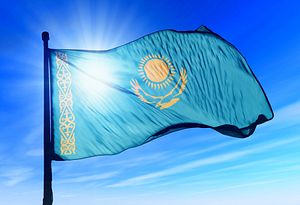Weekend Central Asia reads:
The Russians in Kostanay: Olzhas Auyezov for Reuters took a look at the northern Kazakh city of Kostanay, which is still predominantly populated by ethnic Russians. “There is no separatist rebellion in northern Kazakhstan,” he writes, but the region’s ethnic Russians “are feeling increasingly insecure and some sympathize with the separatists in Ukraine.” Kazakhstan has been quick to jump at any mention of ethnic disunity. In November, a pro-Russian blogger was sentenced to five years in prison after posting a poll asking whether parts of Kazakhstan should join Russia.
Kazakh Reporter Acquitted: A rare bit of good news greeted Central Asia watchers this week when Yulia Kozlova, a journalist who had been arrested and charged with illegal drug possession in December, was acquitted by a court in Almaty. Kozlova maintains that the drugs found in her apartment were planted by police and it seems the court, at least, acknowledged the possibility. Per RFE/RL’s report, the court “ruled on February 29 that the origin of the drugs found in Kozlova’s apartment in December must still be established.”
Eurasianet’s Joanna Lillis, who has been following the case from Almaty, lays out the particulars of the case in greater detail–the threads go back several years.Shortly before Kozlova’s acquittal, her case was mentioned on an RFE/RL podcast tackling the issue of media crackdowns in Central Asia.
Rights in Turkmenistan: This week a pair of human rights organizations–the Turkmen Initiative for Human Rights (TIHR) and the International Partnership for Human Rights (IPHR)–with funding from the EU, released a short report on recent developments in human rights in Turkmenistan. Improving human rights has been a featured aim in several statements from the Turkmen government regarding ongoing efforts to revise the constitution, but such statements should all come with a block of salt. The report says, “In spite of recent legal reforms and other initiatives argued to be aimed at enhancing human rights protection in the country, the situation remains highly repressive in practice.”
The Fate of Depshaar: A recent photo essay drops in on a tiny Kyrgyz village in Tajikistan. The photographer, Janyl Jusupjan, captures the town’s few remaining residents and tells some of its depressing story. Although it is located near Ismoil Somoni Peak, the village gets little benefit from foreign hikers. Ismoil Somoni Peak is the highest mountain in Tajikistan and was known during the Soviet era as Stalin Peak then later Communism Peak. “Today, the adventure trade is a monopoly of the Tajik central government,” one of the captions reads. “Foreign tourists wishing to climb the former Peak of Communism are brought to the base camp or to a higher elevation by helicopter directly from the Tajik capital, Dushanbe.” During the Stalinist period the village was forcibly depopulated, its people deported. Some have returned, but landslides and floods have plagued them.
And… beards: In case you were wondering, Tajikistan is apparently still bent on shaving men with threatening beards. One man interviewed in this video clip from RFE/RL says he’s been detained and shaved three times in the last year.
































